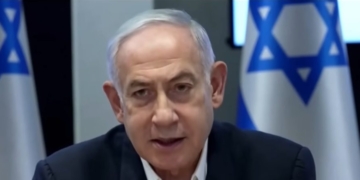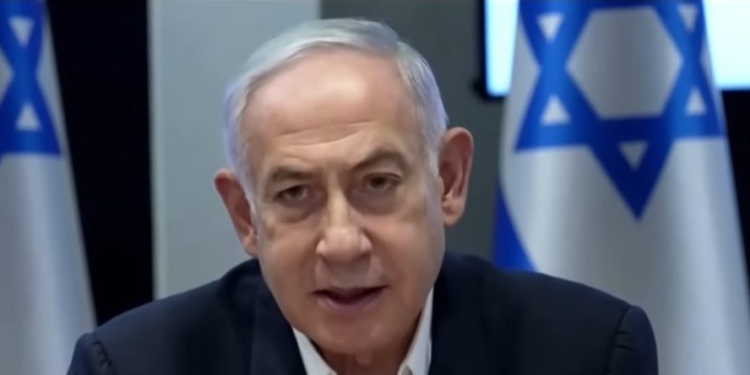Mass protests and strikes have erupted across Israel following recent revelations that six hostages in Gaza were killed by Hamas, according to multiple reports.
The Israel Defense Forces (IDF) discovered six hostages in southern Gaza over the weekend — including one American — who appeared to have been “brutally murdered” by Hamas, not long before they were found. The news of the hostages’ murder sparked anger across the Israeli public, who have been pressuring Israeli Prime Minister Benjamin Netanyahu and his government for a ceasefire-hostage swap deal for months.
“I came today to scream for the hostages,” Shai Leifer, an Israeli citizen, said of her plans to protest Netanyahu, according to The New York Times. “We’ve had enough. We’re tired of it.”
Demonstrators lift placards and flags during a protest calling for the release of Israelis held hostage by Palestinian militants in Gaza since October, in Tel Aviv on August 31, 2024, amid the ongoing conflict in the Gaza Strip between Israel and the Palestinian militant Hamas movement. (Photo by JACK GUEZ/AFP via Getty Images)
Thousands of people went on strike and walked off their jobs on Monday, creating immediate gaps in certain sectors across Israel, including in hospitals, banks, public transportation and the country’s biggest airport, according to The Wall Street Journal. The country’s government ordered that the strike end by 2:30 p.m. local time, rather than the planned time of 6:30 p.m. local time.
Protests were expected to continue on Monday despite the order to halt the strike, according to the WSJ. Tens of thousands of Israeli citizens took to the streets on Sunday and Monday to protest Netanyahu and his decision not to agree to a ceasefire deal, which would secure the release of the hostages, of which there are roughly 100 left.
“We are in a very, very hard situation now, we and all the country, because of the hostages. And yesterday it was maybe the hardest day,” professor Yehuda Ullmann, head of surgery at Rambam Hospital in Haifa, told Reuters, noting that the decision to strike was difficult because it went against a doctors’ creed. “We can’t stand aside and that’s why we came into a strike.”
For his part, Netanyahu was reportedly upset by the strikes because he felt they failed to blame Hamas, which started the war on Oct. 7 when the terrorist group invaded Israel and killed roughly 1,200 people.
“We will definitely make Hamas pay for the murder of the hostages,” Netanyahu reportedly told cabinet ministers, according to The Times of Israel, citing Israeli outlet Ynet News. Netanyahu has been increasingly at odds with those in his orbit as to how the war should be conducted, with tensions boiling over last week in a shouting match between him and his head of defense, according to Axios.
It wasn’t immediately clear whether the historic protests and strikes would shift the Israeli government toward a ceasefire agreement, according to the WSJ. A ceasefire-hostage swap deal between Israel and Hamas has been a longtime goal of the U.S. and the West, who has helped negotiate several proposals over recent months.
Those negotiations have largely stalled on multiple occasions, however, and there’s no clear track for a ceasefire in the immediate future, as neither Israel nor Hamas can seem to agree on terms. President Joe Biden is reportedly planning to present a “take it or leave it” ceasefire proposal in the coming weeks, one that could represent the end of the U.S. role in negotiations if the proposal fails, according to The Washington Post.
Netanyahu’s office did not immediately respond to a request for comment.
All content created by the Daily Caller News Foundation, an independent and nonpartisan newswire service, is available without charge to any legitimate news publisher that can provide a large audience. All republished articles must include our logo, our reporter’s byline and their DCNF affiliation. For any questions about our guidelines or partnering with us, please contact [email protected].


























